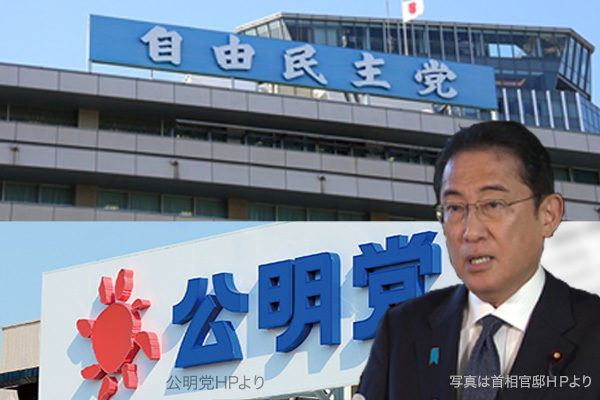The ruling parties’ coordination on Japan’s overseas defense equipment transfers between Liberal Democratic Party and its coalition partner Komeito is in disarray as the latter has taken an attitude of ignoring the accumulation of previous discussions. An LDP-Komeito working team launched the discussions on the matter in April and was going in the direction of approving the transfer of equipment jointly developed with other countries to third countries in July. However, Komeito Secretary-General Keiichi Ishii told a press conference on December 1 that “exports to third countries are far beyond the way things have been done so far, and we should be cautious.” He thus reversed the discussions that had lasted for more than a half year, sending them back to square one.
Komeito’s one-country pacifism
Ishii was referring to a next-generation fighter jet subjected to Japan-Britain-Italy joint development. Under the current operational guidelines for the three principles on overseas defense equipment transfers, Japan cannot export the fighter jets to countries other than the two joint development partners. Former Defense Minister Itsunori Onodera, who chairs the working team, has tried to pave the way for allowing such aircraft’s exports to third countries under his recognition that joint development and production are almost synonymous with alliance and that strengthening relations with the North Atlantic Treaty Organization leads to enhancing deterrence in East Asia.
The National Security Strategy, which was approved by the cabinet in December last year, states that overseas defense equipment transfers would contribute to developing a favorable security environment for Japan. Komeito might have toughened its attitude in an apparent bid to emphasize itself as a party of peace to its supporters, endangering the working team’s plan to present its final report by the end of this year.
Joint development is not the only area under discussion at the working team. Currently, defense equipment exports are limited to five operational categories: rescue, transportation, warning, surveillance, and minesweeping. The working team is going in the direction of expanding such categories. The LDP had initially proposed to abolish the categories and allow the export of lethal equipment, but it now intends to expand the categories to include equipment related to air defense and maritime security. Air defense may cover missiles for Ukraine fighting against Russian aggression, while maritime security may cover warships for Southeast Asian countries threatened by China’s military advancement.
Komeito, on its part, has agreed to expand the categories but insists they should be limited to education/training and landmine clearance. The party may be concerned that air defense missiles and autocannons on minesweepers can kill or injure people. But the equipment protects export destination countries and their people, or disposes of naval mines. Komeito may think that even the slightest possibility of killing or injuring people will not lead to peace. This idea appears to be a one-country pacifism to prevent only Japan from being involved in direct killing or injuring acts.
Top-level talks to break through impasse
In these difficult times, when how to create a favorable security environment for Japan is regarded as an urgent issue, Komeito’s brain freeze will not lead to Japan’s national interests. Since the ruling parties’ coordination has become in such astray, only Prime Minister Fumio Kishida can make a final decision. He should organize a meeting with the top Komeito leader soon and show his leadership as prime minister.
Kiyofumi Iwata is a councilor and a Planning Committee member at the Japan Institute for National Fundamentals. Formerly, he served as Chief of Staff of the Japan Ground Self-Defense Force.


